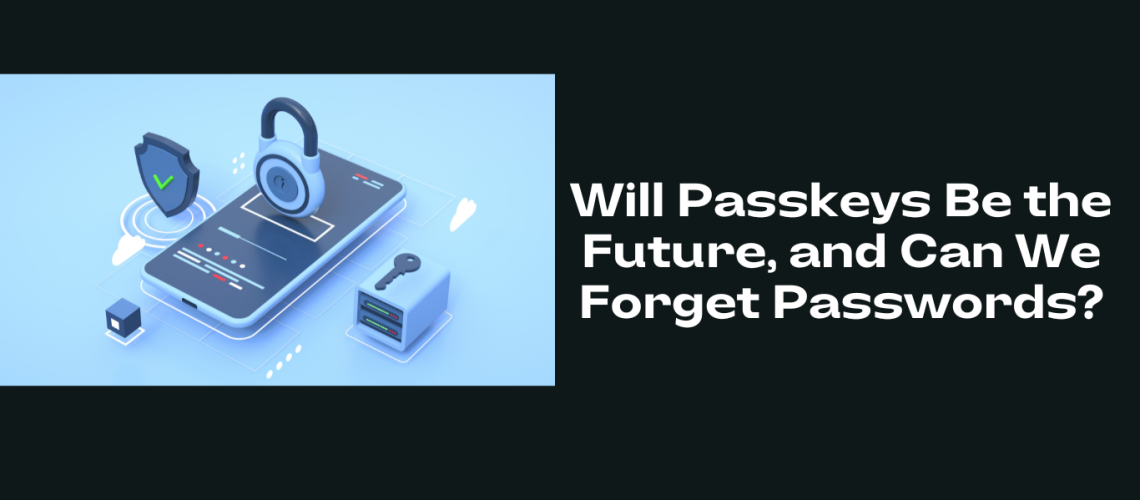In today’s digital world, passwords have become an integral part of our online security. We use them to protect our sensitive information, from emails and social media accounts to online banking and shopping. However, the rise of cyber threats and the limitations of traditional password systems have led to the exploration of alternative authentication methods, such as passkeys. In this blog, we will delve into the concept of passkeys, explore their potential as a future authentication method, and discuss whether we can bid farewell to traditional passwords.
Problem with Passwords
Passwords have served as a reliable means of authentication for decades, but they are far from perfect. Several issues arise with conventional passwords:
- Weak Passwords: Users often resort to weak passwords that are easy to remember, making them susceptible to brute-force attacks.
- Password Reuse: Many individuals reuse the same passwords across multiple platforms, which puts their accounts at risk if one gets compromised.
- Phishing Attacks: Cybercriminals frequently use phishing techniques to trick users into revealing their passwords unknowingly.
- Forgotten Passwords: Users often struggle with remembering complex passwords, leading to frequent password resets.
- Account Recovery: The process of account recovery through security questions or secondary emails is often flawed and insecure.
Introducing Passkeys
Passkeys represent a potential solution to the shortcomings of traditional passwords. Unlike passwords, passkeys are based on public-key cryptography. Instead of relying on a shared secret (the password), passkeys utilize a pair of cryptographic keys: a public key, which is known to others, and a private key, which is kept secret by the user.
How Passkeys Work
- Registration: During registration, users generate a unique pair of cryptographic keys. The public key is stored on the server, while the private key remains on the user’s device.
- Authentication: When a user attempts to log in, the server sends a challenge to the user’s device. The user’s device then signs the challenge using the private key, and the server verifies it with the corresponding public key.
- No Shared Secrets: Passkeys eliminate the need for users to share their private key or a password with the server, making it significantly more secure.
Advantages of Passkeys
- Enhanced Security: Passkeys provide a higher level of security as they are resistant to many common cyber-attacks, including phishing and brute-force attacks.
- No Password Fatigue: Users don’t have to remember passwords, which reduces the chances of weak passwords or password reuse.
- User-Friendly: The process of authentication with passkeys can be seamless and user-friendly, especially with hardware tokens or biometric integration.
- Reduced Account Recovery Hassles: As passkeys eliminate password-based logins, the burden of account recovery is diminished.
The Roadblocks to Passkey Adoption
While passkeys show great promise, there are challenges that need to be addressed before they can replace passwords entirely:
- Implementation Complexity: Adopting passkeys requires a significant overhaul of existing authentication systems, which can be time-consuming and costly.
- User Acceptance: Convincing users to switch from passwords to a new authentication method might require education and assurance of its benefits.
- Compatibility: Ensuring compatibility across various devices and platforms is essential for a smooth transition to passkey-based authentication.
Conclusion
Passkeys offer an intriguing glimpse into the future of authentication. With their ability to address many of the weaknesses of passwords, passkeys hold great potential to become the next standard in online security. However, widespread adoption will require overcoming implementation challenges and gaining user acceptance. Whether we can completely forget passwords remains to be seen, but it is clear that passkeys offer a promising pathway to a more secure and user-friendly digital world. As technology continues to evolve, the transition to passkeys could mark a significant step forward in safeguarding our digital identities. Contact us at Green Edge Computers to know more.



